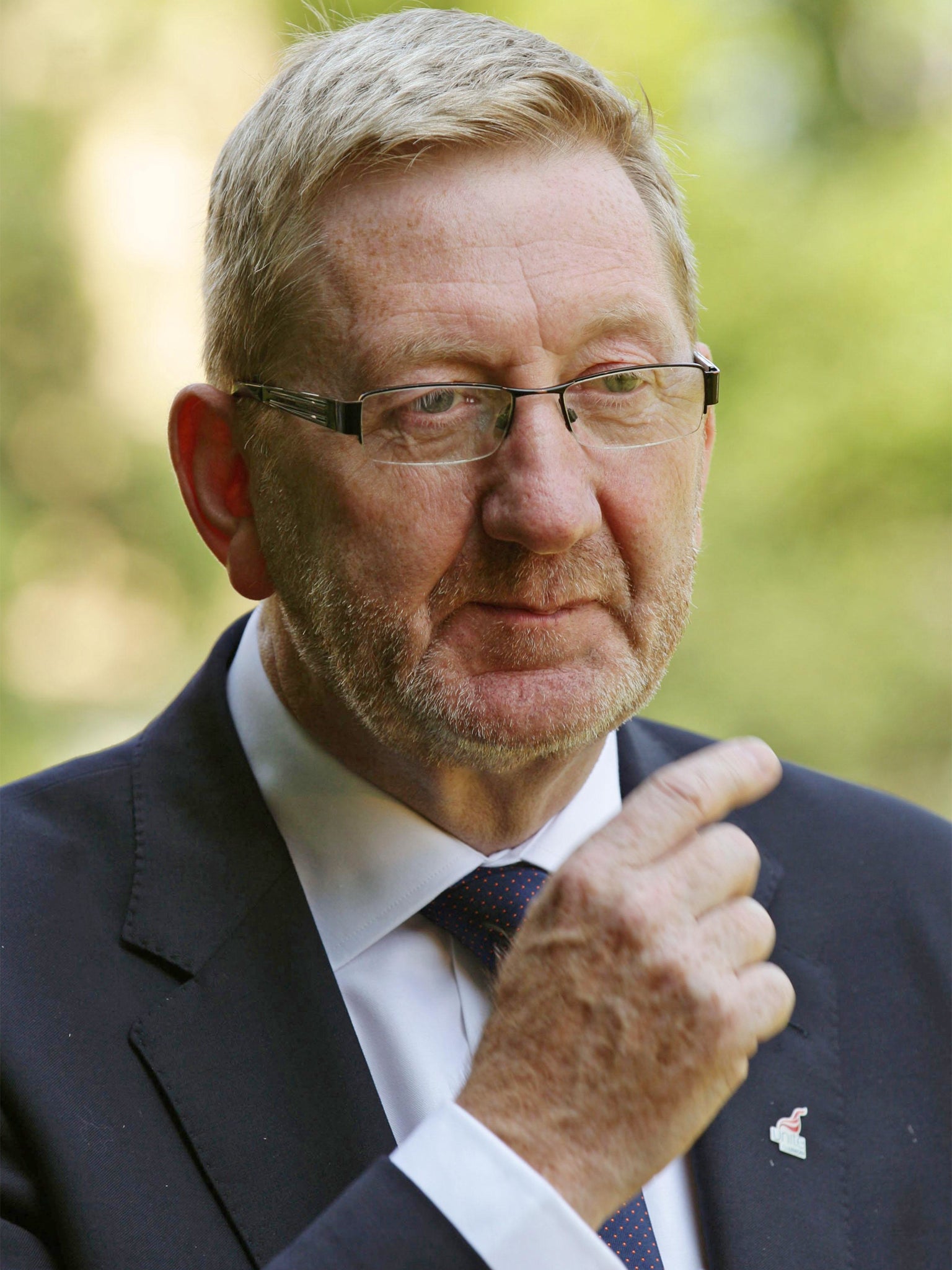Union leader Len McCluskey takes on 'Oxbridge Blairites' and demands more say in Labour's policy making
The head of Unite blames clique for turning party into a ‘pinkish shadow’

Your support helps us to tell the story
From reproductive rights to climate change to Big Tech, The Independent is on the ground when the story is developing. Whether it's investigating the financials of Elon Musk's pro-Trump PAC or producing our latest documentary, 'The A Word', which shines a light on the American women fighting for reproductive rights, we know how important it is to parse out the facts from the messaging.
At such a critical moment in US history, we need reporters on the ground. Your donation allows us to keep sending journalists to speak to both sides of the story.
The Independent is trusted by Americans across the entire political spectrum. And unlike many other quality news outlets, we choose not to lock Americans out of our reporting and analysis with paywalls. We believe quality journalism should be available to everyone, paid for by those who can afford it.
Your support makes all the difference.The head of Britain’s largest union has demanded a far greater say in Labour’s policy-making process as he spoke out against “Oxbridge Blairites” inside the party.
Len McCluskey, general secretary of Labour’s biggest donor, Unite, said he was broadly in favour of Ed Miliband’s proposal for union members to “opt in” to giving money to the party.
But he suggested that it must be linked to giving unions a bigger say in policy making than they had under the last Labour government, and more involvement in choosing future MPs.
Speaking to a meeting of Unite activists, Mr McCluskey said strains in the link between Labour and the unions had been building up since the advent of New Labour, when many in the movement felt sidelined.
“For a long time we have been taken for granted by people who welcome our money, but not our policy input, who want to use our resources at election time but do not want our members as candidates,” he said.
“The block vote didn’t stop a Labour government invading Iraq. Affiliation didn’t keep Labour out of the clutches of the banks and the City. Our special relationship didn’t get the union laws repealed.”
He also claimed that a high-up clique of “Oxbridge Blairites” wanted to cut union links to create “a hollowed-out party they can control easily”.
Mr McCluskey said he expected the new agreement to give unions a real say in policy and stop Labour in government being a “pinkish shadow”.
“Our main aim is to ensure that as many Unite members as possible [who are] already paying our political levy now sign up individually, by whatever means have transparency and integrity, to be affiliate members of the party. For that to work, and for the trade unions to put their shoulders to the wheel to make it work, the offer has to be an attractive one.
“Not a party that is a pinkish shadow of the present coalition that gives the City a veto over economic decisions and embraces the austerity agenda squeezing the life out of the country.
“But a party that offers real hope, that stands up for the poor and vulnerable, that puts growth at the heart of its agenda, that confronts privilege.”
A Labour source said: “Under the reforms Ed has proposed, individual trade unionists will become a proper part of our party. Working people will have a real choice about joining Labour – and those that become members will be a real voice inside the party like all our members.
“Donations – be they from big businesses or major trade unions – will, as now, have no link with policy proposals. That is very different from the Conservatives with their cosy dinners for big donors in Downing Street to discuss policy.”
But the Education Secretary, Michael Gove, said the proposed opt-in changes could strengthen union influence over the Labour. “What it could lead to is the unions exercising more influence,” he said.
“Rather than money flowing automatically, money will go to the Labour Party depending on whether or not the trade union general secretaries, who retain control of their union’s political funds, decide that the policies and the candidate selection of the Labour Party [accord] with their wishes.”
A conference will be held next spring to fix details of the changes under which union members will have to agree to opt in to party membership.
Subscribe to Independent Premium to bookmark this article
Want to bookmark your favourite articles and stories to read or reference later? Start your Independent Premium subscription today.
Join our commenting forum
Join thought-provoking conversations, follow other Independent readers and see their replies
Comments